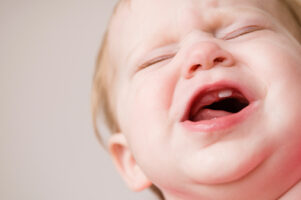Babies Hiccups: Causes, Treatment,
and Impact on Child’s Health
Baby’s
hiccups can be a common occurrence for many new parents, but they can also be a
cause for concern. Hiccups are the result of involuntary contractions in the
diaphragm muscle and can cause discomfort for the baby.
It is
important for parents to understand the causes, treatments, and impact on a
child’s health in order to make informed decisions about their care.
In this
blog, we will explore the various factors that contribute to hiccups in babies,
as well as the available treatments and their impact on the health of the
child. We will also provide references to support our findings and offer advice
for parents looking to alleviate their baby’s hiccups.
Causes of Babies Hiccups
There are
several factors that contribute to hiccups in babies, including overeating,
swallowing air while drinking or eating, and sudden changes in temperature.
Hiccups can also be a result of digestive issues, such as acid reflux or gas.
Additionally, stress, excitement, and fatigue can trigger hiccups in babies.
Treatment of Babies Hiccups
While
hiccups in babies are typically harmless, they can be uncomfortable for the
child. Fortunately, there are several treatments available to help alleviate
hiccups in babies. Some popular methods include:
Distracting the baby: One effective method of treating
hiccups in babies is to distract them by changing their surroundings or
engaging them in play.
Feeding: Nursing or bottle-feeding your baby
can help to relieve hiccups as the baby is swallowing and this can interrupt
the muscle spasms.
Holding the baby upright: Holding your baby upright during
and after feeding can help to prevent hiccups from occurring.
Burping: Burping your baby after feeding can
help to release any air bubbles that may be causing hiccups.
Impact on Child’s Health
While hiccups
in babies are usually harmless, they can sometimes be a sign of an underlying
issue, such as acid reflux or gas. In some cases, hiccups can cause discomfort
and can lead to problems with feeding, such as a reduced appetite or poor
weight gain. Additionally, persistent hiccups can interfere with a baby’s sleep
patterns and cause fatigue.
Conclusion
Hiccups in
babies are a common occurrence, but they can also be a cause for concern.
Understanding the causes, treatments, and impact on a child’s health is important
for parents looking to alleviate their baby’s hiccups. If your baby’s hiccups
persist, it is recommended that you consult with a pediatrician to rule out any
underlying health issues.
References:
American
Academy of Pediatrics. (2015). Your Baby’s First Year. New York: Bantam.
Blom, N. J.,
& Aarts, M. A. (2015). The Mechanisms and Treatment of Hiccups. Frontiers
in neurology, 6, 77.
Smith, A. M. (2011). Hiccups in Children.
Journal of Pediatrics, 159(2), 300-305




